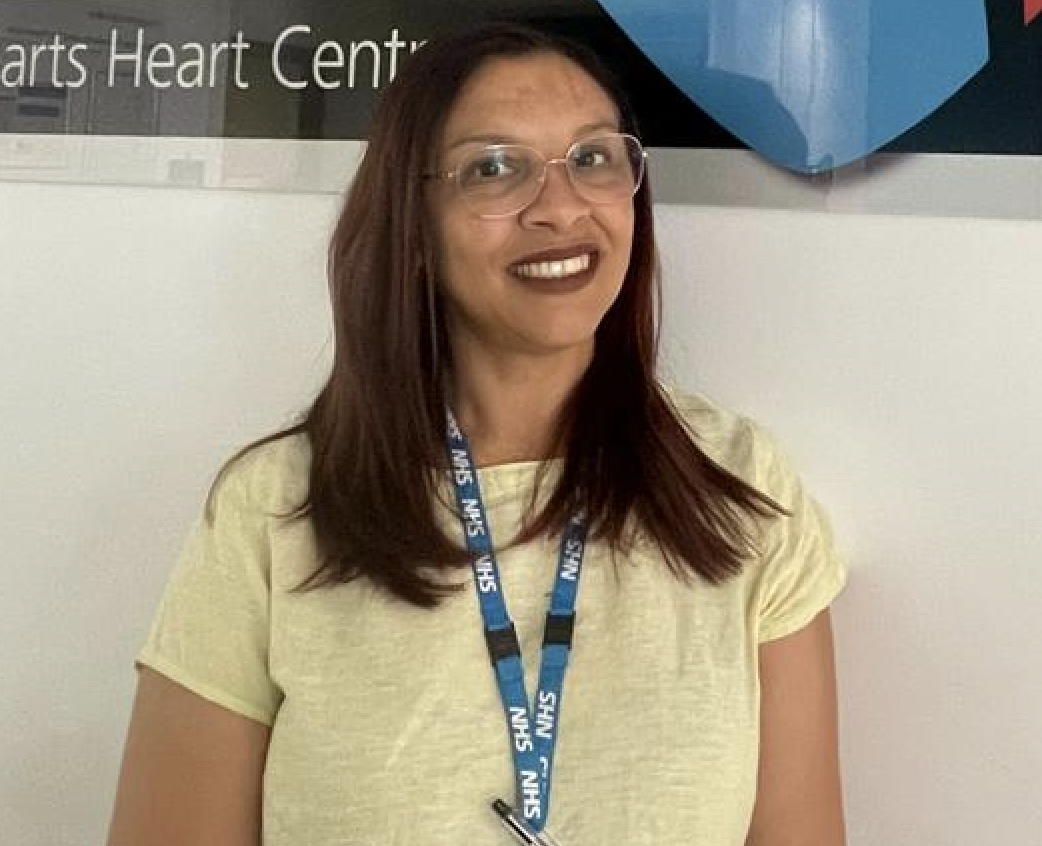Being Black, Brazilian and a research nurse

Flavia, a cardiac research nurse, talks about her experience as a Black woman in the NHS and how she uses her insight to better support patients from BAME backgrounds to get involved in research.
Being Black and Brazilian, the first thing people think when they see me is that I'm of mixed race. This is not actually the case; I’m 100% Black, and this has irrevocably shaped my experiences as a working woman.
Growing up, I have always been acutely aware of my black heritage and the challenges we have faced. My great-grandmother was a slave, and hearing about her experiences in the not-so-distant past has absolutely driven how my family prioritises our education and careers.
Similarly, when I look back at my life, I think that the lens of ambition is pretty evident. Back in Brazil, I always knew I wanted to help people, and I trained to be a Dentist. I worked in this field for many years, but when I moved to the UK at a mature age, I couldn’t afford to get my degree recognised here.
Nonetheless, my resolve to stay in healthcare and try something different drove me to try something different. I started working as a healthcare assistant and was able to get my degree in Nursing funded by the hospital I worked at. Since then, I’ve continued to work on progressing my career in various specialties and am proud to be a Cardiac Research Nurse.
What drew me to research is its capacity to improve healthcare and discover new techniques for treatment. However, we know that people from Black, Asian, and minority ethnic (BAME) backgrounds, particularly Black people, are less likely to take part in research. I have found this to be especially true in my line of work, with many patients being resistant to participation due to a general distrust of how their information will be used and how they will be treated in the process. This distrust, due to historical events like the Tuskegee syphilis study, is justified.
This is where being not just Black, but also an immigrant comes into play. I speak Portuguese, Spanish, and French, so using these languages to connect with patients who don’t speak English as a first language has been incredibly helpful. Even if these people don’t speak those languages, I can relate to them, and they can relate to me - with both of us being able to connect using plain and uncomplicated English.
When patients express any kind of worry about being involved in research, I can’t tell you how important it is to not dismiss or minimise their worries, regardless of how kind your intentions are. We need to acknowledge that they feel anxious and reassure them with transparent, accessible language, which, most importantly, empowers them with the choice of whether to participate or not. Sometimes, it’s about offering a bit of counselling and a few kind words and accepting their decision not to take part. It might feel like you’ve failed to persuade them, but next time they’re offered the opportunity, their response may be different! These things take time.
Moving forward, I want to continue to progress my career and improve the experience of BAME colleagues and patients at Barts Health through my role as the BAME Network Lead at St. Bartholomew’s Hospital. If you have any thoughts or ideas about improving inclusion at Barts Health or would like advice about progressing your career, feel free to contact the Network.
 Afrikaans
Afrikaans Albanian
Albanian Amharic
Amharic Arabic
Arabic Armenian
Armenian Azerbaijani
Azerbaijani Basque
Basque Belarusian
Belarusian Bengali
Bengali Bosnian
Bosnian Bulgarian
Bulgarian Catalan
Catalan Cebuano
Cebuano Chichewa
Chichewa Chinese (Simplified)
Chinese (Simplified) Chinese (Traditional)
Chinese (Traditional) Corsican
Corsican Croatian
Croatian Czech
Czech Danish
Danish Dutch
Dutch English
English Esperanto
Esperanto Estonian
Estonian Filipino
Filipino Finnish
Finnish French
French Frisian
Frisian Galician
Galician Georgian
Georgian German
German Greek
Greek Gujarati
Gujarati Haitian Creole
Haitian Creole Hausa
Hausa Hawaiian
Hawaiian Hebrew
Hebrew Hindi
Hindi Hmong
Hmong Hungarian
Hungarian Icelandic
Icelandic Igbo
Igbo Indonesian
Indonesian Irish
Irish Italian
Italian Japanese
Japanese Javanese
Javanese Kannada
Kannada Kazakh
Kazakh Khmer
Khmer Korean
Korean Kurdish (Kurmanji)
Kurdish (Kurmanji) Kyrgyz
Kyrgyz Lao
Lao Latin
Latin Latvian
Latvian Lithuanian
Lithuanian Luxembourgish
Luxembourgish Macedonian
Macedonian Malagasy
Malagasy Malay
Malay Malayalam
Malayalam Maltese
Maltese Maori
Maori Marathi
Marathi Mongolian
Mongolian Myanmar (Burmese)
Myanmar (Burmese) Nepali
Nepali Norwegian
Norwegian Pashto
Pashto Persian
Persian Polish
Polish Portuguese
Portuguese Punjabi
Punjabi Romanian
Romanian Russian
Russian Samoan
Samoan Scottish Gaelic
Scottish Gaelic Serbian
Serbian Sesotho
Sesotho Shona
Shona Sindhi
Sindhi Sinhala
Sinhala Slovak
Slovak Slovenian
Slovenian Somali
Somali Spanish
Spanish Sundanese
Sundanese Swahili
Swahili Swedish
Swedish Tajik
Tajik Tamil
Tamil Telugu
Telugu Thai
Thai Turkish
Turkish Ukrainian
Ukrainian Urdu
Urdu Uzbek
Uzbek Vietnamese
Vietnamese Welsh
Welsh Xhosa
Xhosa Yiddish
Yiddish Yoruba
Yoruba Zulu
Zulu